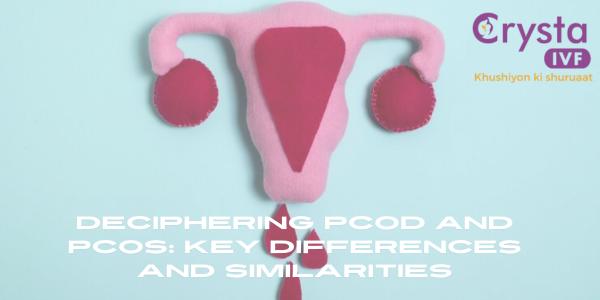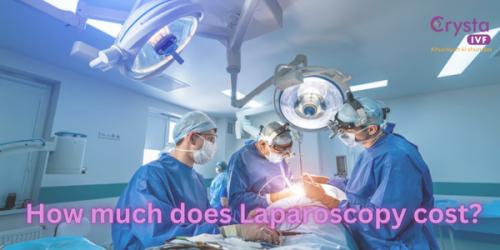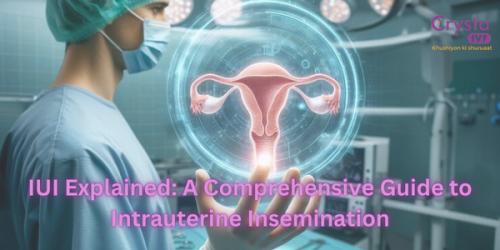Key Factors to Consider When Selecting an Infertility Specialist

What is infertility?
Infertility is a medical condition that affects both men and women and prevents them from conceiving a child naturally. It's a complex issue with various underlying causes.
Signs of Infertility
Women: irregular or absent periods, pain during intercourse, pelvic pain, or a history of miscarriage.
Men: decreased sex drive, erectile dysfunction, low sperm count, or problems with ejaculation.
Causes of Infertility
Women: hormonal imbalances, endometriosis, fallopian tube blockages, uterine fibroids, and premature ovarian failure.
Men: hormonal imbalances, varicocele (enlarged veins in the scrotum), infections, genetic abnormalities, and certain medications.
When to Seek Help
If you've been trying to conceive for over a year without success, it's advisable to consult with a healthcare professional.
Infertility Treatment Specialist
An infertility treatment specialist is a medical professional who specializes in diagnosing and treating infertility. They can provide a comprehensive evaluation and recommend appropriate treatment options.
Treatment Options
Medication: Hormonal medications can help regulate ovulation and improve sperm quality.
Surgery: Procedures like laparoscopy can address issues like endometriosis or fallopian tube blockages.
Assisted Reproductive Technologies (ART): This includes techniques like in vitro fertilization (IVF), intrauterine insemination (IUI), and intracytoplasmic sperm injection (ICSI).
Remember, infertility is a treatable condition. With the right guidance and support, many couples can overcome infertility and have a child.
It's important to seek help early. An infertility specialist can provide personalized advice and support throughout your journey.
When is IVF performed?
Understanding the Timing of IVF
In vitro fertilization (IVF) is a complex process involving various stages. The timing of these stages is crucial for success. So, when exactly is IVF performed?
The IVF Cycle:
Stimulation: This is the initial phase where you're given hormone medications to stimulate your ovaries to produce multiple eggs. This usually takes about 2 weeks.
Egg Retrieval: Once your follicles are mature, a minor surgical procedure is performed to retrieve the eggs from your ovaries under anesthesia.
Fertilization: The retrieved eggs are fertilized with sperm in a laboratory setting.
Embryo Transfer: After a few days, one or more embryos are transferred to your uterus.
Waiting Period: You then wait for implantation and a potential pregnancy.
Factors Affecting Timing
Your Reproductive Health: Your age, overall health, and any existing fertility issues can influence the timing of IVF.
Egg Quality: The quality of your eggs, which generally declines with age, can affect the timing of the cycle.
Sperm Quality: The quality of your partner's sperm can also impact the timing of IVF.
IVF Protocol: The specific IVF protocol your doctor chooses can influence the duration of the stimulation phase.
Why Timing Matters:
Egg Maturity: Eggs need to be mature at the time of retrieval for successful fertilization.
Uterine Lining: The lining of your uterus needs to be prepared to receive the embryo.
Hormone Levels: Precise hormone levels are essential for supporting egg development and a healthy pregnancy.
Key Takeaways:
IVF is a multi-step process with specific timing requirements.
Your doctor will carefully monitor your progress and determine the optimal time for each stage.
Factors like your age, health, and the quality of your eggs and sperm play a role in timing.
Understanding the timing of IVF can help you better prepare for the process.
Remember, every IVF journey is unique. Your doctor will provide personalized guidance based on your circumstances.
Why is the IVF Procedure Performed?
In vitro fertilization (IVF) is a complex procedure that involves fertilizing eggs with sperm outside of the body and then transferring the resulting embryos into the uterus. It's often a last resort for couples struggling with infertility.
Why is IVF performed?
Infertility: This is the primary reason for IVF. It can be caused by various factors in either the male or female partner, or both.
Blocked Fallopian Tubes: If the fallopian tubes are damaged or blocked, it can prevent sperm from reaching the egg, hindering natural conception.
Endometriosis: This condition involves the growth of uterine tissue outside the uterus, which can cause infertility.
Male Infertility: Low sperm count, poor sperm quality, or other male reproductive issues can make natural conception difficult.
Previous Failed Attempts at Conception: If multiple attempts at natural conception or other fertility treatments have been unsuccessful, IVF may be recommended.
Genetic Disorders: For couples at risk of passing on genetic disorders, IVF with preimplantation genetic testing (PGT) can be used to select embryos without the affected genes.
How Does IVF Work?
Hormone Stimulation: The woman is given hormone medication to stimulate the development of multiple eggs.
Egg Retrieval: Eggs are retrieved from the ovaries through a minor surgical procedure.
Sperm Collection: The male partner provides a sperm sample.
Fertilization: Eggs are fertilized with sperm in a laboratory setting.
Embryo Development: The fertilized eggs, now called embryos, are monitored for development.
Embryo Transfer: Selected embryos are transferred into the uterus.
Pregnancy Test: A pregnancy test is typically taken a few weeks after the embryo transfer.
Success Rates:
IVF success rates vary depending on factors like the couple's age, the cause of infertility, and the number of embryos transferred. While IVF can be a challenging process, it has helped countless couples achieve their dream of having a child.
It's important to note that IVF is not a guaranteed solution. It's a complex procedure with potential risks and side effects. Before deciding on IVF, couples should consult with a fertility specialist to discuss their options and weigh the potential benefits and drawbacks.
What are the steps involved in IVF treatment?
IVF (in vitro fertilization) is a complex process that involves several steps. Here's a breakdown of what to expect:
Hormonal Stimulation
Purpose: To stimulate the ovaries to produce multiple eggs.
Process: Hormone medications are administered to encourage the development of multiple follicles containing eggs.
Egg Retrieval
Purpose: To retrieve mature eggs from the ovaries.
Process: A minor surgical procedure is performed under anesthesia. A thin needle is inserted through the vagina to retrieve the eggs.
Sperm Collection
Purpose: To obtain sperm from the male partner.
Process: The male partner provides a semen sample.
Fertilization
Purpose: To combine the egg and sperm in a laboratory setting.
Process: The eggs and sperm are placed in a petri dish and allowed to fertilize.
Embryo Culture
Purpose: To allow the fertilized eggs to develop into embryos.
Process:









Comments